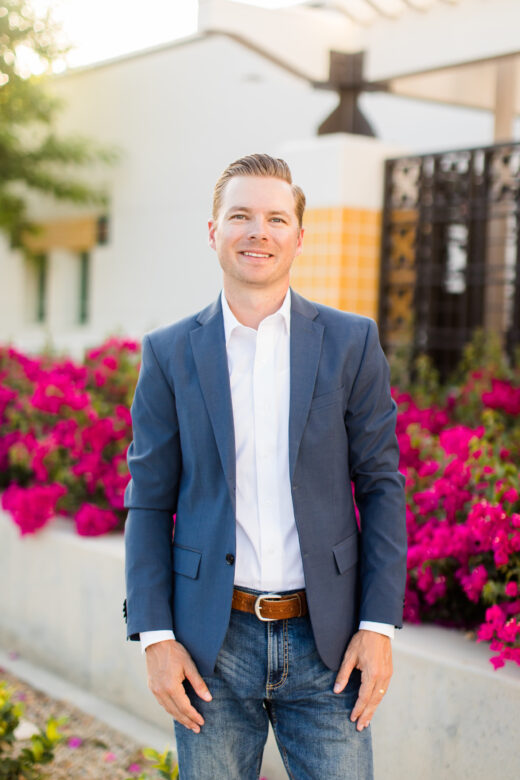
On Nov. 8, the state’s general election will be held. Voters will have to choose an Assembly member for District 47, which includes Idyllwild, Pine Cove and north to Banning and a small sliver of San Bernardino County and many of the desert cities. As a result of redistricting after the 2020 Census, there is no incumbent in this race. Much of the area was represented by Assemblyman Chad Myers. The two candidates for the seat are Republican Greg Wallis and Democrat Christy Holstege. The Town Crier interviewed each candidate and both stories appear in this edition of the paper.
Greg Wallis is seeking the 47th Assembly District seat. The 32-year-old is currently the district manager for Assemblyman Chad Mayes (NPP 42nd District), who announced in January that he would not seek reelection.
After seven years working as Mayes’ district manager, Wallis was intrigued with the opportunity to seek the seat for himself. “I really never thought of myself as running for office. I thought my career would be behind the scenes,” he said in May. But after a discussion with his wife, Desiree, he entered race.
As a third-generation Californian, and a Bermuda Dunes resident, Wallis says on his website (www.gregwallis.org/), “California is a land of opportunity and social mobility.” To maintain those attributes if he were elected, his campaign themes are “affordability, opportunity and cutting-edge technology.”
“California is in a clear affordability crisis,” he averred. “This is the initial reason many of my friends and family are leaving for other opportunities. The cost-of-living is through the roof.
“Every problem has a government solution,” he added. “But they should allow the private sector to be part of the solution.”
Health care was one of his examples where change is necessary to continue “affordability.” Although California has robust medical programs, the cost of health care can become exorbitant.
“Insurance is not the issue, it’s access to care,” he said. The state Legislature considered single-payer state insurance, but tabled action because the estimated cost was nearly $350 billion.
Wallis argues that private health care is necessary for several reasons besides giving people the opportunity to choose their own physicians and is substantially less costly.
“We need to streamline the government’s role. A medical insurance environment like dental insurance would be preferable,” he argues. He will work to make health care more accessible and affordable.
From his legislative staff experience, he has seen close-up how partisan behavior can push aside possible effective compromise and solutions. “I want to get everyone — the California Medical Association, insurance companies, and regulators — in the same room. That’s how we can reduce the costs of health care,” he believes.
Climate change solutions pose similar cost issues to Wallis. “Climate change is real and we’re not able to reverse the impacts seen or control them going forward.”
For example, as of Oct. 1, the average price of a gallon of gasoline in California was more than $2.50 greater than the national price per gallon.
He argues that the lack of energy supply contributes to the higher California energy prices for gas and electricity. While the California Air Resources Board decision to phase out gasoline vehicles should help reduce air pollution, Wallis argues that the 2035 deadline is arbitrary and depends upon the ability of manufacturers to produce more electric vehicles. And as the number of electric vehicles grows, California will need greater electric production.
More wind and solar generation will help, but not alleviate the need. He points to Gov. Gavin Newsom’s recommendation to keep the nuclear power plant, Diablo, open longer when the Assembly Democrats wanted it closed.
“I’m not a pure libertarian,” Wallis stated. He does favor tuition subsidies for doctors and nurses, higher pay for teachers, green energy incentives and increased funding for other programs.
Although California has a $98 billion surplus, he cautions that, “When government is involved, it should be a good steward setting spending priorities. How does it spend efficiently?”
One example of a bigger role is better vegetative management in order to prevent or control wildfires. Although a Palm Desert resident, he is quite aware of the threat of wildfires on the nearby Hill and advocates greater brush and dead tree removal.
In contrast, he points to Assembly Bill 257 as an over extension of government into the private sector. AB 257 is the “Fast Food Accountability and Standards Recovery Act” Newson signed Sept. 5. It authorizes the creation of the Fast Food Council, which includes members from labor and management, to set wages, security, time off and other work conditions for workers in the industry.
“There is a problem with this law. It assumes one size fits all,” Wallis said, explaining his objection. “There’s diversity throughout the state, just as there is in District 47. Idyllwild is different from Yucaipa and both are different from the desert. If ‘one size fits all,’ then it may cause many small businesses to go under.”
In the June primary, Wallis with 31% of the vote was second in a race of four candidates. Palm Springs Democrat Christy Holstege was first with 50%. Nevertheless, he remains confident for the November election.
Although the new 47th District has slightly more registered Democrats, much of former Republican Mayes represented most of the district. Wallis suggests his private polling is trending his way.
After the primary, at the end of June, he had about $85,000 in his campaign chest. But since Aug. 1, he has collected $575,000, of which the California Republican Party has contributed nearly 90%, indicating its view of the district’s competitiveness.
As of Sept. 24, Wallis’s campaign had $117,000 in cash after spending nearly $700,000.
Other donors include Abbott Laboratories, Howard Jarvis Taxpayers, Mayes, Philip Morris and Sempra Energy.
He has been able to begin a television campaign which he hopes will significantly increase his support. “With our polling on the ground, we seem right on the issues, and see a change in direction from one party rule in Sacramento,” he shared.










